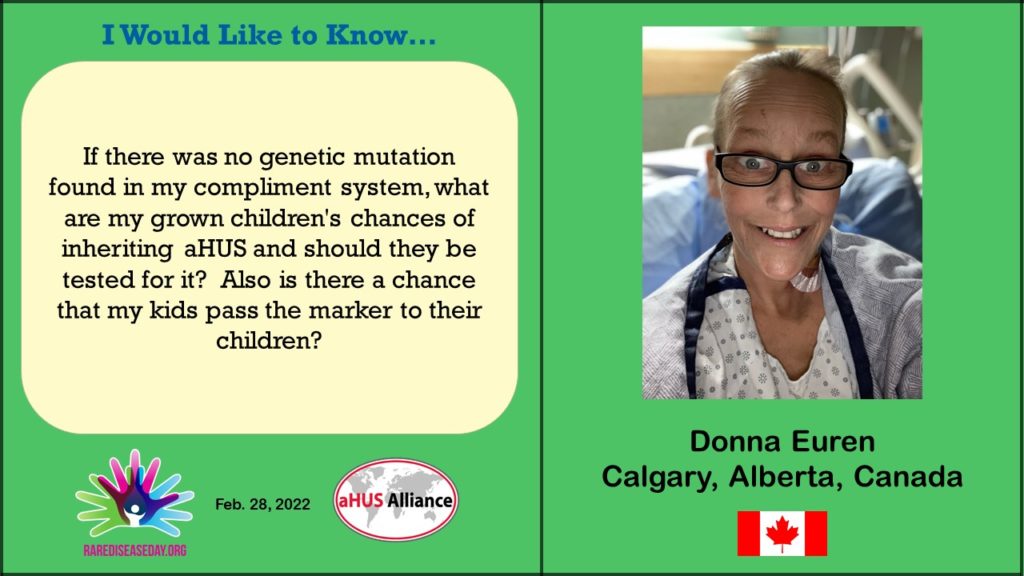Usually inheritance questions about a HUS relate to genetic susceptibility mutations/variants/markers that are known. This one is different because it is about patients who are idiopathic ( cause is unknown) , and for whom no genetic factor has been found.
The answer is the same, Donna. If there a genetic reason has been found in an individual then the chance of passing it on to the next generation is 50:50. If there is one but it is unknown it remains a 50:50 chance that it will be inherited. If inothing is found then genetic testing of the offspring will be same answer – the unknown “something” will not be found so no need for testing to be done.

For the generation after, if there is an unknown “something” to pass on, the chances of it being inherited from the first patient is 25%. i.e. 50% of 50%.
As with known genetic mutations it does not mean that those who inherit a susceptibility will necessarily experience aHUS. There is a chance that some may just carry the disease and may never experience it. Penetrance of aHUS in families is incomplete. Some get it , some do not.
That is not just down to luck. Those predisposed to aHUS can experience many triggering hits, but not onset.
But also it is known that there are more common genetic factors which may be protective of those with a rare susceptibility to aHUS . Conversely some may be put at more risk.
Even if no genetic factor is found it is useful to know it. aHUS research frequently observes any differences between those who are idiopathic and those with known genetic disease enabling genetic variants.
One thing that has been noticed about aHUS patients who are idiopathic, Donna, is that they are more likely to withdraw successfully from eculizumab treatment.
Article No. 509

